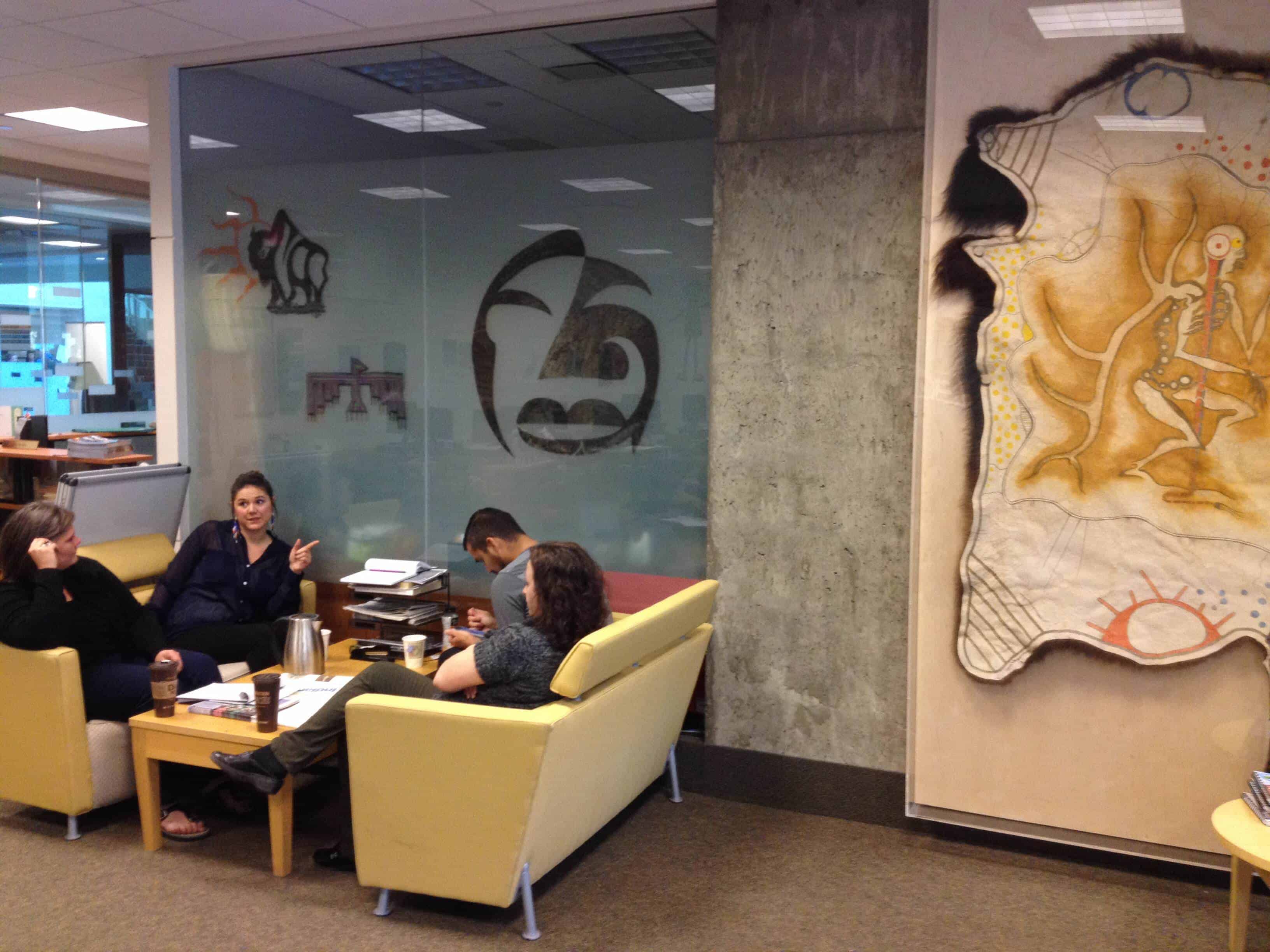Nitonipamin oma. We are here.

Retention and community guide this student success program
Nitonipamin oma, often shortened to oma, is a first year student success program offered by the University of Regina Aboriginal student center. Oma helps Aboriginal students adapt and succeed in a university setting by providing a community oriented learning structure.
Daphne Kay is one of the programs students.
“A lot of students of Aboriginal decent don’t have family members who have been to university before and I’m one of them . . . I had no idea what university was about.” Said Kay.
In Oma groups of first year students, of approximately 20, take three classes together in the general arts programs. The group also takes a fourth class, which is voted on by the group as a whole. This is only for one year though, and students are not required to stay attached to the Aboriginal student center after their first year of Oma.
Nitonipamin oma, meaning, “we are here” in Cree, was first implemented in the fall semester of 2010.
“The Aboriginal student center has seen that need in our students because our retention rates were so low and our dropout rates were so high” said Kay, now studying political science.
In the 2013-2014 semesters, Oma saw 88 per cent of its students continue into second year studies. Jayleen Francis emphasizes that when she started working with Oma in 2012-2013, there was only 69 per cent student retention after the first year. Francis, the Aboriginal student center success facilitator, says that despite these numbers a more dynamic examination is required. Saying that sometimes “it turns out [the university] isn’t where they want or need to be. Maybe they need to be in SIAST.”
In Oma this is not seen as a failure. The program gives students the chance to experience and better understand what university will offer them and where they want to go. More than only serving as an academic program Oma is a support structure for its students.
Having grown up in, her words, a “very racist small town” coming to the U of R was largely an unknown for Kay.
“I was automatically afraid to talk to anyone who wasn’t my skin colour. I was afraid of walking in to a room and knowing I wasn’t welcome there,” said Kay.
For many Aboriginal students in the program, largely from southern Saskatchewan, coming to the city and not knowing people or being familiar with the campus can be and isolating.
However, Oma gives these students a peer group, friends and a place to belong.
As Kay said, “it gave me roots to grow. Having roots in the Aboriginal student center has allowed me to branch out and talk to other people”.
In moving forward the program will continue to be offered, empowering and encouraging Aboriginal students.










